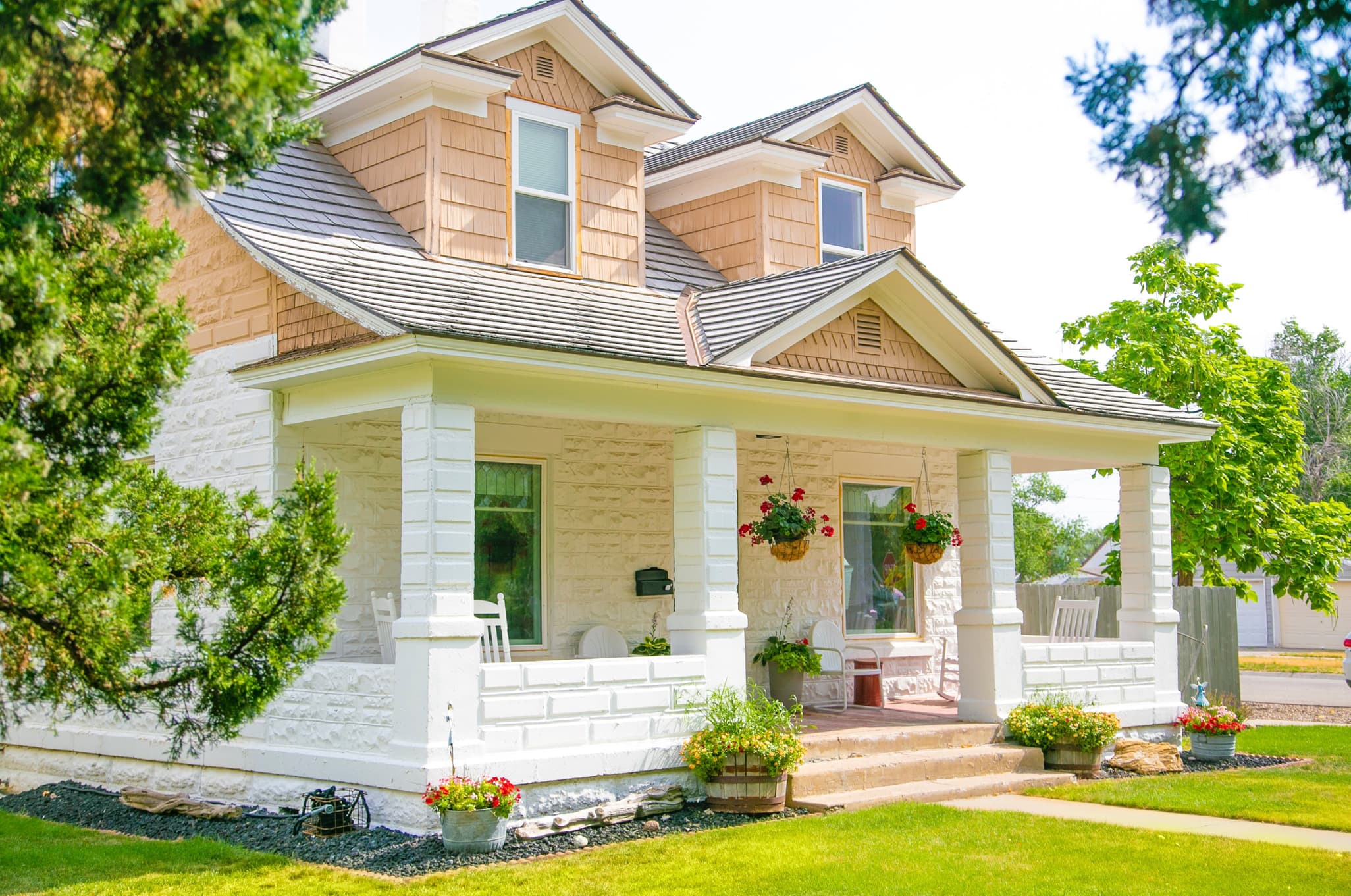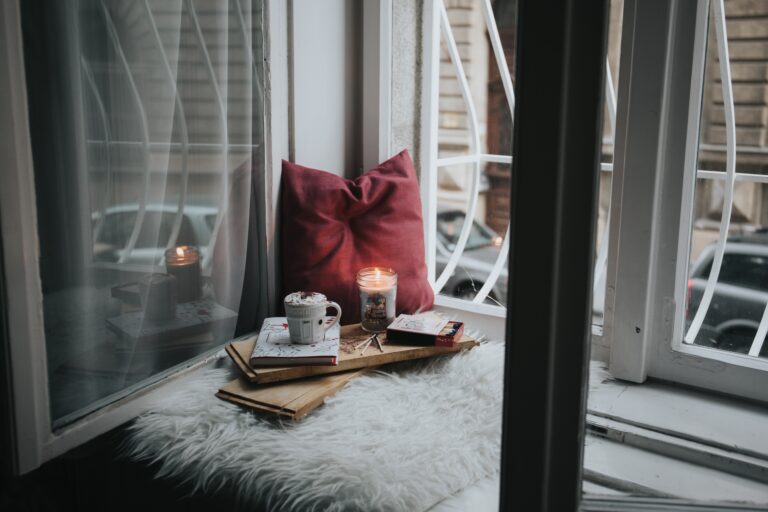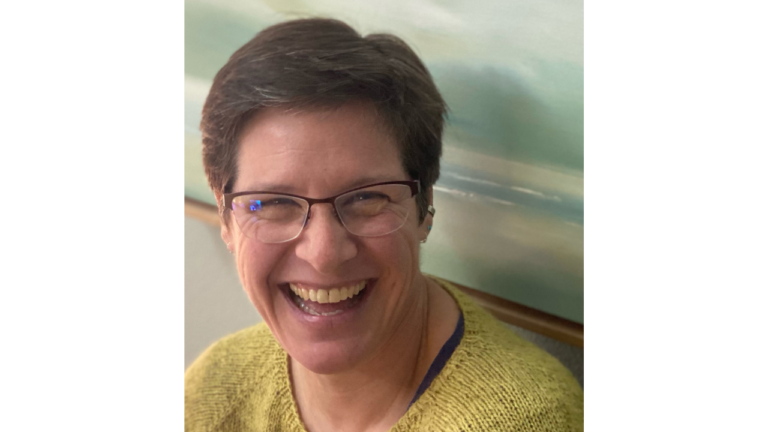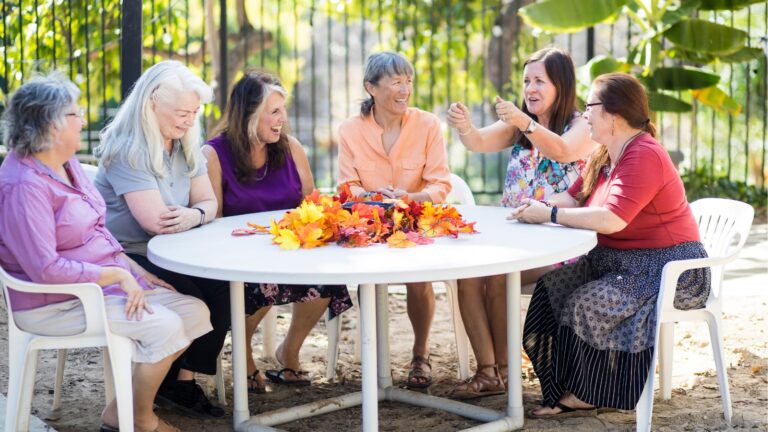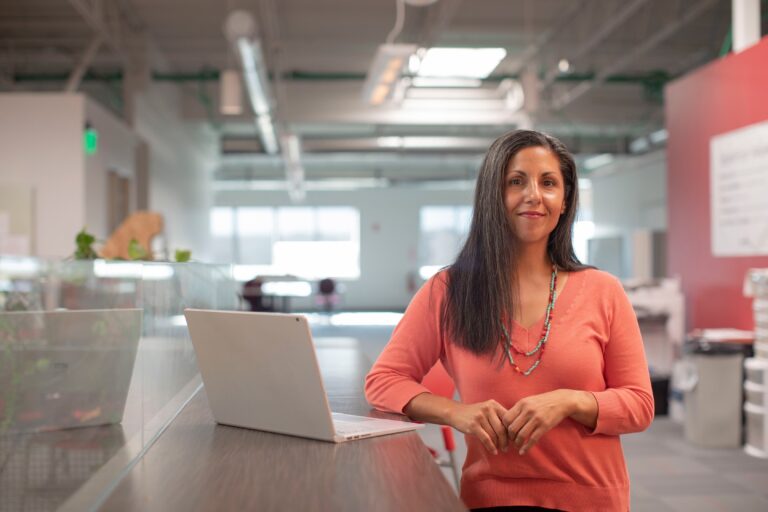Life Changes for Widows: Choosing Where to Live After Losing Your Spouse
Widows face difficult decisions when it comes to your living situation after your spouse or life partner dies. These big life changes for widows can start an endless loop of self-doubt about what to do, when to do it, and how to manage it all.
Whether you choose to stay in the family home, downsize, or start fresh in a new location, there are so many factors to consider when it comes to finding the right living situation for yourself and your children.
In this podcast episode, we’re sharing our personal stories regarding our living situations and the challenges we encountered along the way. Whether you’re struggling to sell your house, feeling pressure from family and friends to make decisions that aren’t in alignment with what you want, or trying to find home maintenance help, we understand the complexities involved in deciding whether to stay or move.
Key topics in this episode:
- Practical aspects of living alone like finding balance between maintaining a home and asking for help
- Trusting your instincts and not succumbing to pressure from others
- Creating a comfortable living situation
Making these significant life changes for widows can be incredibly challenging, especially when you’re in a vulnerable state. It’s natural to seek advice and guidance from well-meaning friends and family, but ultimately, you should trust your own feelings and instincts. It’s okay to change your mind or adapt your living situation as circumstances evolve.
Listen in on our heartfelt discussion about the challenges, choices, and triumphs of staying put or finding a new place to call home after the loss of a spouse.
Listen to the Full Episode
Links + Resources From This Episode
- Village to Village Network
- Are you searching for emotional support, practical advice, and guidance on navigating widowhood? Join us in the Widow Squad membership.
- Follow us on Instagram and subscribe to our YouTube channel.
“It’s all about finding that comfort, safety, or maybe even a fresh start in a new place.”
Episode Transcript
Kim: Hey there. It’s Kim Murray alongside my ever-inspiring co-hosts, Jen Zwink and Melissa Pierce. Today on the Widow Squad podcast, we’re touching on a topic close to our hearts. Reevaluating and exploring living situations post loss. It’s all about finding comfort, safety, or maybe even a fresh start in a new place.
So, let’s dive in.
Jen, what’s your experience with exploring your living situation after Brent died?
Making Difficult Decisions: Should I Stay or Should I Go?
Jen: Well, Brent died suddenly and very unexpectedly. Our living situation was ideal and perfect for us. You know, it was our dream house. We purchased the home right after we got married. This was our place. We were going to start our family and really just spend the rest of our lives together. We loved our house.
And so, after he passed away, people were asking me what I was going to do. This was a week later. You know, “what are you going to do? What are your plans?” And it’s like you can’t even think that far ahead. You can’t even think about the next day, right? I just had to go by what I was feeling at the moment. I just remember being in our backyard and we lived on the water, we lived on a lake. This was this beautiful, peaceful place that we both loved. I just remember thinking, I’m not going anywhere. I’m not. I’m not leaving this place. This is our place. This is, you know, our dream. Yet as I’m saying that I’m feeling comfort, but at the same time, I couldn’t picture being in that space without him. Even though it was a place that we had built together and that I loved just as much as he did, I had to start thinking about what it felt like to be in that house without him. And of course, that takes a little time. You can’t make these decisions right away.
So, I had to see how that felt after being in the house for a while. I just knew that it wasn’t a dream that I wanted to continue on my own because it wasn’t just my dream. So, I had to kind of reevaluate that. And some parts of these decisions are, of course, about financial decisions. Can you stay? Can you afford to stay? What does it look like as far as maintaining the home? Like I said, we lived on a lake. So, we had the boat dock. We were always doing repairs on the boat dock. It was the yard. It was cutting the grass and at the time, with Claire being so little, I couldn’t just leave her in the house and then go outside and cut the grass. All these little pieces and parts that come together when your partner is now out of the picture and you’re having to take care of it all on your own. I know I remember talking to one widow. This was several months ago. You know, we talk to a lot of widows in the Widow Squad and we hear all these different stories and all these different experiences. And she had four little kids. And she and her husband had just moved into a fixer upper home on ten acres or something. This was their dream. They had purchased this old house. They had all these plans to fix everything up. They were starting to do the repairs and the designs on their new house, plus they had all this acreage. I mean, she said they had plans for a little barn, and they were gonna have animals and goats and chickens and all the things. She had to give up on that dream right away. I mean, she couldn’t handle everything. She had four little kids, plus all of this house and stuff she was trying to take care of and the property. So, within the first six months, she had to sell her house just because she couldn’t handle it all.
There are a lot of things that come into play when we have to make these big decisions. The other person who we just talked on the podcast was Petra Gordon. That was Episode 27. Petra was telling me when I did that interview that she really wanted to stay in her house. She was very comfortable being there. It was home to her. That was their home. That was her home. And she didn’t want to leave, but she had a lot of her family trying to talk her into moving. She said she started to kind of doubt herself and feel kind of crazy and believe she wasn’t making the right decision. She thought, well, maybe they know better than I do, you know, that I should leave. Why would I stay? Even though she really wanted to, she was trying to follow her gut and trust her own feelings. Sometimes these people around us with these really good intentions they want the best for us, and they think they know what’s best for us. So, they were trying to tell her to move. And she said, “I don’t want to move.” You know? I don’t feel that in me. I don’t feel that I need to do that. So, she didn’t. And she told me she was so glad that she stood her ground. She wasn’t just following what they were telling her to do because she was comfortable in her house. She was following her gut, trusting her own instincts.
I feel like a lot of these big decisions about moving come down to that too. So financially and how you feel, try to just trust your own intuition, and not go by what everybody else is telling you what they think you should be doing. I had another widow in our group tell me that her family was also telling her to get a place closer to her mom and her brother. This widow has a four-bedroom home, and some of her kids are already off to college. Some of her kids are just finishing high school and are about to leave. And so everyone was telling her she didn’t need this big four-bedroom house. They said, “you move closer to your support.” She just kept saying, “I want to stay in my house. I don’t want to leave.” They tried to tell her to go, and they even found an apartment for her. But the apartment that they found cost more than the mortgage of her four-bedroom home. It was a two-bedroom apartment. The rent was outrageous compared to her mortgage. And she said, “it doesn’t make sense.” You know, her kids were still coming home on the weekends. And she wants her four-bedroom home so she can fit all her kids when they when they want to come visit. She felt like she had to defend her decision to her family, not let them talk her into doing something that she really didn’t want to do.
I feel like when we are doubting our own decisions, it’s because we’re in a really vulnerable state when it comes to making these big decisions. And so, we do kind of lean on other people for their input and for their advice. But you really have to trust your own gut when it comes to this. And that would be my advice is how comfortable are you where you are, you know, how secure is it financially? Does it make sense? Does it make sense for the stage of life that you’re in? Do you have really, really little ones where you can’t go out and cut the grass? Or is it a situation where, yes, I have this big giant house and all my kids are grown and they moved away. And I don’t I don’t need all of this. If that’s how you feel, then you have to just trust your own gut and do what’s best for you.
That would be my piece of advice and my takeaway from my own experience is just to go with what you’re feeling.
Melissa: Yeah. It has to make sense to you and what you’re capable of doing. And what else is on your plate?
Jen: So, Kim, what was your experience?
Practical Challenges of Staying Put
Kim: Well, we stayed in our house. I mean, I had no intention of moving or leaving. So, you know, Mark was diagnosed with glioblastoma, which is terminal brain cancer. So, we knew he was going to die. And I knew I was going to stay in the house because there was no reason for me to go anywhere else. I don’t like change. My husband’s death was enough change for me at that point. Right? Like, I can’t even wrap my head around trying to uproot my kids and move some place else. There was no reason for me to do that. So, I thought, okay, we’re just gonna stay here, let the kids finish out school, I’ll figure out what I’m gonna do at that point and cross that bridge when I come to it. So, I wasn’t thinking like I’m gonna stay in this house forever. I was just thinking my kids are eight and 10 and they need to stay in their school. They were in elementary and middle school, but our high school was right across the street from my house. So, I was like, no, this makes sense. All of the community things we were doing, all the support that we had, the things that we were involved in were there. So, I had no intention of moving.
And Mark and I had built the house. This was the house that we started our family in. So, I thought it was best for all of us if we just stayed put. Now I had fantasies about selling the house and renting an RV and traveling the country. And I had fantasies about, just, you know, being nomads and homeschooling my kids on the road, but that didn’t work out. Obviously, that would have been a very bad idea, but I had a lot of fantasies about those things. They just didn’t come to fruition. I did think about it often, but I knew for us and for me and for my mental health that staying where we were was going to be the best thing.
When you’re talking about making the decisions that are best for you, of course, you know, you have to think about you and your children. If you have small kids or adult kids, if you’re trying not to move too far away from them, and everybody has an opinion. People always think they know what’s better for us than we know for ourselves. When you’re in those vulnerable states, like you said, Jen, sometimes you have a hard time making those decisions. But it doesn’t mean they’re the wrong decisions. They’re just difficult to get to that point sometimes. And when you have all the people in your ear telling you that you should do this or you should do that, you should go here, you should go there, you’re just like, well, what makes sense? What doesn’t make sense? You know, it can be very hard.
As helpful as people think they are sometimes, they’re sometimes not. So, a lot of those opinions are completely unhelpful because they’re not moving us toward a better decision. They’re just making it more confusing for us. So, my dad lives in Florida. A lot of people thought I might be moving to Florida to be closer to my dad. And I said, “no I’m not moving. My support system is here, the kids’ school is here, there’s no reason for me to uproot all that.” And Mark’s parents lived close by. So, we had that help when we needed it, and the kids had their grandparents and you know, just all the routine.
I did not like taking care of the house. I did not like the maintenance on the house. I had a difficult time with lawn maintenance and yard work. I ended up figuring a lot of that out. I did have some help from some neighbors, and then I had to hire some help. I just don’t do lawn maintenance, you guys. I just don’t. That’s not my thing. So, I hired it out. Somebody cut the grass for me because that just made sense. He was in and out in 20 minutes. You guys, he would come in with his big lawn mower. He would cut the grass and then he would sweep all the grass clippings away and edge the lawn in 20 minutes. Why would I not do that? Why would I not?
Melissa: Yeah. It would take you a whole afternoon to do that.
Jen: It would take all day.
Kim: All day. And then, when my kids got a little bit older my neighbors were like, “well, you should teach your boys how to mow the lawn.” Well, I don’t know how to mow the lawn so that’s the first thing. But again, the lawn guy is in and out in 20 minutes. I’m not about to try to go down that road with my kids where it takes them four hours to cut the grass and then they’re not edging it correctly or whatever. I needed things to be simple and easy. So that, to me, was simple and easy. I had somebody else cut the grass. I had somebody fertilize the grass. And then when I needed help with the sprinkler system, the irrigation system, I would just hire somebody to come in and help me do that.
I didn’t love the maintenance. That’s hard work. Everybody who’s trying to maintain a house after their spouse dies, it’s hard work, especially when you don’t know how to do those things that your spouse did. You know, Mark did a lot of things outside, and I didn’t realize all the things until he was gone. So then learning how to do all that is super, super, confusing and can be very complicated. But you get through it. You learn it.
I did make some changes to the house. I wanted to update the master bathroom. So I did that and changed some paint colors and bought a few new things for the master bedroom. Even though I wasn’t moving, I was still changing a little bit inside the house just to make it more comfortable for me. I do believe, and this is again, woo-woo, people can believe what they want, but I know Mark was there with us. I know he was sending us signs. And I know sometimes my kids thought they heard things, and no one else was in the house, that sort of thing.
And then I got remarried in 2021. So, when I met my now husband, it was about two years after Mark died. We dated for, like, six or seven years before we got married. But, of course, after about four or five years of dating, we were talking about what we were gonna do, where we were going to live. And so those then become even more complicated questions. Right? Like, what? How do we do this? I wasn’t determined to be in my house forever and ever. And it didn’t make sense to have somebody move in there. I don’t think that’s a fair ask. I think it’s a big ask to ask somebody to move into the home that you shared with your deceased spouse. Now other people can, again, make their own decisions. You can agree or disagree. For me, I thought that was not a thing I wanted to do. So, we talked about our options. Tom, my husband now, he had a condo, and I had a house. So, does he sell his condo and move in here? Do I sell my house and move in there? But my kids were still in school, so it didn’t make sense for us to go anywhere until they were out of school. So, we decided to build a house. We decided to build a house for ourselves and start our own future there. He had to move in with us temporarily after he sold his condo. We were planning to wait until my youngest was done with school before we moved, but a lot of factors played into our final decision, and we ended up moving my son’s senior year. So, yeah, I emotionally scarred my kid again. Another emotionally scarring episode.
The economy, the housing market, everything that was going on, it made sense for us to just go. And I’m not gonna lie. It was really rough to say goodbye to our house. I mean, this, again, was the house that Mark and I started our family in. My kids and I were highly emotional. I’m not gonna sugarcoat or lie or anything. We were bawling daily, OK? Just purging a lot of things out of the house and trying to decide what to take and what not to take and breaking down and sobbing. My kids and I were sobbing uncontrollably. And then, of course, I’m thinking, this is a house that they grew up in, like, what am I doing? I’m ripping them out of their house, but let’s be honest you guys, they grow up and they become adults. It wasn’t like I was ripping them out of their house when they were babies. Right? They were on their way to adulthood.
Very, very close to adulthood. We can play lots of tricks on our minds and our brains and make ourselves feel guilty about a lot of things because we think we’re doing damage. We’re making the wrong decision. It’s all BS. Okay? You just do what is right for you at the moment. And at the moment it was right to move out of the house, even though we were crying, even though we were sobbing and having a really difficult time with it.
But when we built the house, and they were pouring the cement for the for the garage, Mark etched into the cement Murray 2002. So that’s on the garage floor of this house.
Jen: Wow. Really?
Kim: Yes. And I told the boys, “This will always be our house. It will always be the Murray house because it’s etched in cement forever and ever.”
We had to make our own peace with leaving. So, we did lots of rituals. We walked into rooms, said goodbye to rooms, reminisced, talked about our favorite memories, just did a lot of things on the days leading up to that move. And it was so flipping hard you guys to drive out of that neighborhood. That’s so hard. I know that we did good in that house. We did. We raised a great family. You know, we did a lot of things right, and I’m glad that I stayed. And then when I left, it was hard, but also peaceful because I just felt like it was time to go on to the next thing.
And so, I love the new house. My kids love the new house. They’re not living with me, but, you know, we’re happy where we are, and I have yet to drive back through my old neighborhood.
Melissa: Yeah. I was gonna ask if you’ve done that yet.
Kim: So, it will be a year in October, so it’s coming up on a year. I still haven’t gone back. Now my older son did. There was a cat that lived across the street from us. And, the cat’s name was Zion, and he would always come over to our house. He was always in my garage, underneath my car. He would have been in the car if the door car door was open. Zion was always around. When we left, my son was like, “I can’t come back here.” So, I didn’t think he was going back to the house. Well, he sent me a video of Zion, the cat, and I said, “oh my gosh. Is this from, like, last summer?” He’s like, “no. I was just there the other day.” I’m like, “what? You drove by the house?” And he says, “yeah, I’ve been driving by.” I didn’t know that. I didn’t know he did that. And he didn’t have to tell me, and he didn’t feel a need to. Again, he made decisions for himself based on what his comfort level was. So I thought well, if he can do it, maybe I can do it. But I can’t do it yet. I don’t know when that time’s going to be. I don’t know when I’m gonna drive back through there, but I will eventually.
All these decisions are extremely difficult to make. Whether you stay, whether you go, what age your kids are, all kinds of factors can play into it. Just make the decision that’s the best for you at that moment in time. We’ve talked before that when you get new information, you make new decisions. If you make another decision after you leave, that’s fine too. It’s getting through that guilt and all the opinions of all the people in your ear just deciding what’s best for you. So that’s what we did.
Melissa: Oh, Kim, I have to ask you. So, as you’re doing the rituals with your kids and you’re having this really difficult time moving from the house, how is Tom doing with all of this? I mean, how what was he doing, or how was he with you?
Kim: Well, he’s very supportive. He’s always been very supportive. If anybody out there listening thinks that all the good guys are taken, they’re not, OK? There are lots of good guys out there, and he was one of them. He’s always been very supportive of all of it – my kids emotional, you know, mental health, mind, and everything. So, he would just give us a lot of space to do what we needed to do and then obviously helped and jumped in whenever we had to. But at one point, all the furniture was taken off of our back patio. And my older son and I were sitting out there. Tom was upstairs in the master bedroom, which looked over the patio. So, he only sees our back. But my arm is around my son and Tom takes a picture of us.
Melissa: Oh, from behind, not your faces. Right?
Kim: Right. From behind. And then on the picture, he drew a heart around us. Then he sent me that picture.
Melissa: Sweet. What a keeper!
Kim: It was very, very sweet. But our move was highly emotional, and fraught with a lot of, I don’t want to say anger, but, like, frustration as we were moving and all these things were happening and packing and purging and all this stuff.
Not at the same time, but individually at some point, we all lost our lost shit.
I mean, we all got to that point where it was like, this is too much. This is too much. But collectively, I think we all worked pretty well together. So Tom was very, very supportive.
Melissa: Yeah. A good guy.
Kim: So, Melissa, what are your experiences?
Emotional Turmoil and Finding a Supportive Environment
Melissa: Oh, well, I think we’ve talked about this a little bit, so I won’t go too heavily into it, but I had to move very quickly after Dave died. We were about a half an hour from the boys’ school. Dave was their teacher at the school, so he would always take them to school, which was a half hour away. We lived on the side of a mountain, so there was lots of snow, and he died in the middle of winter. This was something where like, he would plow the driveway of snow to get us out to drive out onto the main road. We had this four-wheeler with a snowplow attachment, and I never got on that thing. Dave just did that all the time. There was no safe way for me to do it. I mean, it was ridiculous. I’m a city girl too. This was Dave’s dream, and it was our collective dream to raise our kids in a small town closer to his family.
We heated our home primarily with wood heat. We had base heaters, but the house was so big. It just didn’t heat the entire house. So, we had to chop a lot of wood. You know, in the summer and the fall, we’d have to chop all the wood to get ready for winter. By the time winter came around, we had this huge pile of wood on our property. And the boys would have to get their little snow sleds, their plastic sleds, and load the sleds up with wood, and pile it into them. It sounds like a little house prairie or something.
Kim: That’s exactly what I’m thinking, Melissa. Like, is this Little House on the Prairie? Like, people actually do that? In today’s world?
Melissa: They do! It was like a regular ranch-style house, and we were on six acres. It was really beautiful. It overlooked the valley, and it was gorgeous, but it was so remote. I knew at some point I would have to go back to work. I also knew I couldn’t get my kids to school and do all the things that they needed to do, and it honestly didn’t feel that safe to be there without Dave. So, yeah, we moved very quickly within 2 weeks of his dying. We moved into town, into a small house. It was walking distance to school, and that was the decision I had to make. You know, it was surreal. I mean, luckily, we had so many people helping us pack and do all the things. So, I was very fortunate to move quickly, but again, it was a large house, and we moved into a really small home. I had to re-home so many belongings. I didn’t really have time to process things like going through Dave’s clothes. I kept a few items, but it just didn’t make sense to haul everything around all over the place. So, I think that delayed my processing of his death, but it was it was a necessary decision to make, and I’m glad I made it.
I asked a lot of my kids. Kim, when you said that at some point everybody lost their shit, that happened to us too. And it totally makes sense. But, yeah, I was asking a lot of my kids and myself, but we had to do it. And I’m glad we did. It just wasn’t practical to live there, and it wasn’t safe.
Kim: I think that’s part of the issue with some of these decisions is for you, it wasn’t practical. For me, it didn’t make sense to move. And, you know, Jen, you have your own story about why you ended up moving. So, like, it’s just whatever is happening to you has to be the reason you make your decision. So, I applaud you for that, Melissa too, because I’m thinking to myself, I didn’t have to do that. I didn’t have to think about all those things and do it really quickly. That’s a highly stressful situation. Oh my god. And that your husband died unexpectedly.
Melissa: Yeah. It was insane when you think about it. When I tell people the story or I wrote about it in my book, when I go back to think about that, I have very limited memories of what transpired during those two weeks. I don’t even remember how I set up Comcast, or how I set up the internet, or how I set up my washing machine? People did that for me. People really took care of us. A lot of the men in the town were co-coaches with Dave because he coached a lot of sports. They just got in there and just took care of everything. I think I had a problem with the water heater. I wasn’t getting hot water. One of the city workers was like, “get over to Melissa’s house and fix this.”
It was just so nice that this community wrapped their arms around us. So that was really beautiful. But, yeah, you have to do what you need to do to make yourself feel safe. Do what makes sense financially. We were in the process of selling our house, but it wasn’t selling as quickly as we needed to, so at that point, I’m like, I’ll figure it out because it just didn’t make sense to stay there. Once we got into town, the boys could walk to school, or I could walk them to school.
And, I could walk around without fear of a mountain lion. It was crazy. We lived in the woods. There were, like, bears and mountain lions and, you know, all the things. I felt comfortable in our new house. But then again, I knew I wasn’t going to stay there, because I wanted to move back to Portland, which is where my support system was.
There were signs that Dave was taking care of us. I knew there was a particular area that I wanted to live in Portland, so my mom and I just walked around that neighborhood. It was like spring break. I found this house for rent. I’m like, well, let’s walk over to the realtor’s office because it was in this neighborhood I liked, but I couldn’t go in because tenants were in there. I like the neighborhood, and it was up for rent when we were planning to move. So, it was like a month and a half later it was going to be available. I had to go back to Eastern Oregon because the kids had to continue school, but I was concerned because I didn’t see the inside. I’m like, I don’t know what the inside looks like. So, my sister-in-law and my mom went into the house, and this is before video and smart phones or whatever. And they just went room by room on the phone, explaining to me what everything looked like. And I’m like, “okay, I’ll trust you. I’ll sign the lease.” I’d never seen the inside of this thing, but I was just like, Dave, find a good place for us to be. And we were there for almost four years, and that was just a place for us to heal. But, yeah, it was sight unseen, basically.
Kim: Did your mom and sister-in-law say that it was nice, and they were encouraging you because it was a good place?
Melissa: Yeah. They knew it was perfect. They knew which room the boys would have. Like, oh, this would be a perfect room for my youngest, and this would be the perfect move from my old list and all that. So, it was just ideal. And I knew that we were being taken care taken care of. And, again, that whole time I had to listen to my gut. You have to make some tough decisions. I just figured out what works for me. What works for my kids? Go from there.
I do want to talk about living options and stuff for widows. My mother-in-law is part of an organization called The Villages. I think they’re a nonprofit organization, and I think they’re all over the US, but it’s a way for folks to stay in place and age in place. She’s very, very involved in The Villages. Like, say you’re widowed or you’re single. You don’t want to necessarily move from your house. The Villages supports you. They’ll do grocery shopping. They will give you rides to a doctor’s appointment. They will make sure if you want to stay in your home, there’s a safe way to do that.
Kim: This isn’t to be confused with The Villages in Florida, which is an actual retirement community in Florida. So just to make that distinction, because when you’re saying, “The Villages,” I think of Florida.
Meliss: Yeah. Thanks for that clarification. I think Portland has four or five villages, and they are wrapped around a particular area. So, like, the southwest part of town has its own kind of village. I think it’s really a nominal fee. Everybody puts in a nominal fee, and you’re just supporting each other. So, there’s some people that are a little more mobile who still have a car. They can give rides. So they give rides. There are some people that you know, will grocery shop for you.
Jen: That’s a pretty cool concept.
Kim: So, it’s not assisted living. You’re not moving anywhere; you’re staying in your own home.
Melissa: You’re in your house.
Kim: And they’re helping you with whatever you need help with.
Melissa: Yeah. Like, say you don’t drive anymore, but you need to go to the doctor. They either have money in their budget for Lyft and Uber, or they will actually have somebody in their organization drive you because you are part of the organization.
Jen: You are part of that community.
Wrap Up
Melissa: So to wrap this up, listening to your gut is, like, my piece of advice. You’re going to have to make some hard decisions. You can always decide, and then you can change that decision or go in a different direction. There is no right or wrong way to do this. Do what works for you, your family, and your situation. So that would be my piece of advice. Do you do you gals have anything to add to that?
Kim: No. I think we repeat that over and over and over again. Listen to your own intuition. Because we like to second-guess ourselves, or at least I do. I second-guess every decision I make. So, when you’re already doing that, it’s harder for yourself to make these big life-changing decisions. So, nothing’s permanent. You can change your mind at some point if you need to.
Melissa: And don’t beat yourself up because there’s no wrong decision. You can veer off in another direction. So, you know, don’t be too hard, too hard on yourselves.
Well, that brings our discussion about exploring living options, and our particular living situations discussion to a close. Just remember that home isn’t just a place. It’s where your heart finds peace and where memories blossom. Whether you choose to stay or revamp or move, just ensure that it’s a place that embraces you. If today’s chat resonated with you or might help someone, you know, please share the love.
Till next time, keep taking those brave steps and remember, we’re right here with you.

